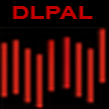Equity Anomalies Persist in International Markets
A very important academic paper suggests that investors should trade global equity markets if they want to pursue equity long-short strategy … Related to multiple equity long/short strategies…
Authors: Jacobs, Muller
Title: Anomalies Across the Globe: Once Public, No Longer Existent?
Link: http://papers.ssrn.com/sol3/papers.cfm?abstract_id=2816490
Abstract:
Motivated by McLean and Pontiff (2016), we study the pre- and post-publication return predictability of 138 anomalies in 39 stock markets. Based on more than a million anomaly country-months, we find that the United States is the only country with a statistically significant and economically meaningful post-publication decline in long/short returns. The surprisingly large differences between the U.S. and international markets cannot be fully explained with general time effects or differences in limits to arbitrage, in-sample anomaly profitability, data availability, or local risk factor exposure. Our results have implications for the recent literature on arbitrage trading, data mining, and market segmentation.
Notable quotations from the academic research paper:
"In this study, we explore post-publication effects of 138 anomalies in the U.S. and 38 international stock markets.
International stock markets are economically important. During our sample period from January 1981 to December 2013, non-U.S. countries account on average for about 59% of the world market capitalization and for 72% of global GDP. Existing asset pricing tests in general tend to focus on the U.S. stock market. International out-of-sample tests may help to provide novel insights into the price discovery process and to enrich or challenge our understanding of price formation.
Indeed, we fi�nd surprisingly large differences between post-publication effects in the U.S. stock market and international markets. Among the 39 stock markets that we study, only the U.S. market shows a signifi�cant post-publication decline in long/short returns. In contrast, the same econometric framework suggests that none of the 38 international markets yields a signi�ficant post-publication decline in anomaly returns. Overall, we do not �find reliable evidence for an arbitrage-driven decrease in anomaly pro�tability in international markets.
We explore several possible mechanisms behind the surprisingly large differences between the return dynamics in the U.S. and international markets, but are unable to fully explain the results. Our findings are consistent with the idea that sophisticated investors learn about mispricing from academic studies, but then focus mainly on the U.S. market. In addition to these event-time publication effects, there is a general negative calendar-time trend in anomaly returns in the U.S. stock market, but not in other major stock markets.
Averaged over our whole sample period, long/short anomaly returns in (various subsets of) international markets turn out to be similar in magnitude as the estimates for the U.S. market. This unconditional view suggests that many anomalies tend to be a global phenomenon and thus are unlikely to be mainly driven by data mining.
Our �findings add to the large literature on international stock market segmentation. We contribute to this debate by providing evidence for seemingly strong geographic stock market segmentation which appears to have significant effects on the formation of prices. From a practical point of view, these �findings may offer quantitative arbitrageurs insights into ways to optimize their investment process. A thorough analysis of geographic differences in capital invested in quantitative arbitrage strategies is needed.
"
Are you looking for more strategies to read about? Check http://quantpedia.com/Screener
Do you want to see performance of trading systems we described? Check http://quantpedia.com/Chart/Performance
Do you want to know more about us? Check http://quantpedia.com/Home/About
Share onLinkedInTwitterFacebookRefer to a friend
























